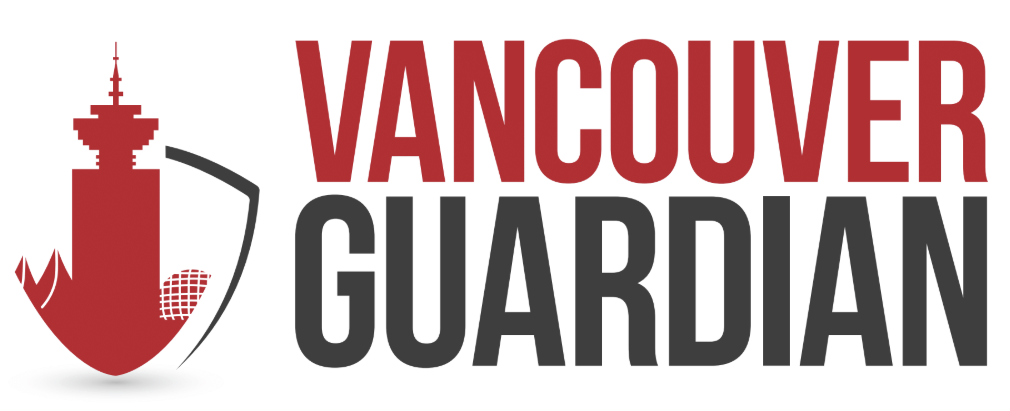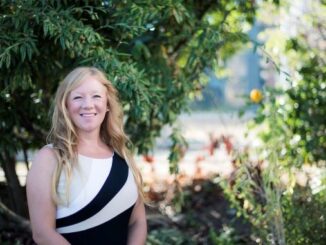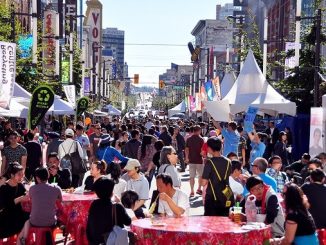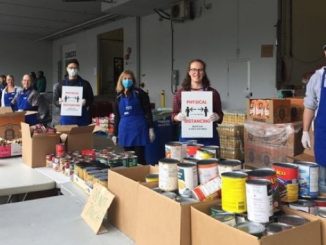For this week’s Charitable Choice, we connected with Raji of West Coast LEAF. Since joining the team in March 2016 and ascending to the role of Executive Director in September 2019, Raji has been at the forefront of tackling gender-based inequality. Her journey with West Coast LEAF, motivated by witnessing the adverse impacts of cuts to social services and legal aid on marginalized groups, mirrors her commitment to utilizing legal advocacy to bring about meaningful societal reform.
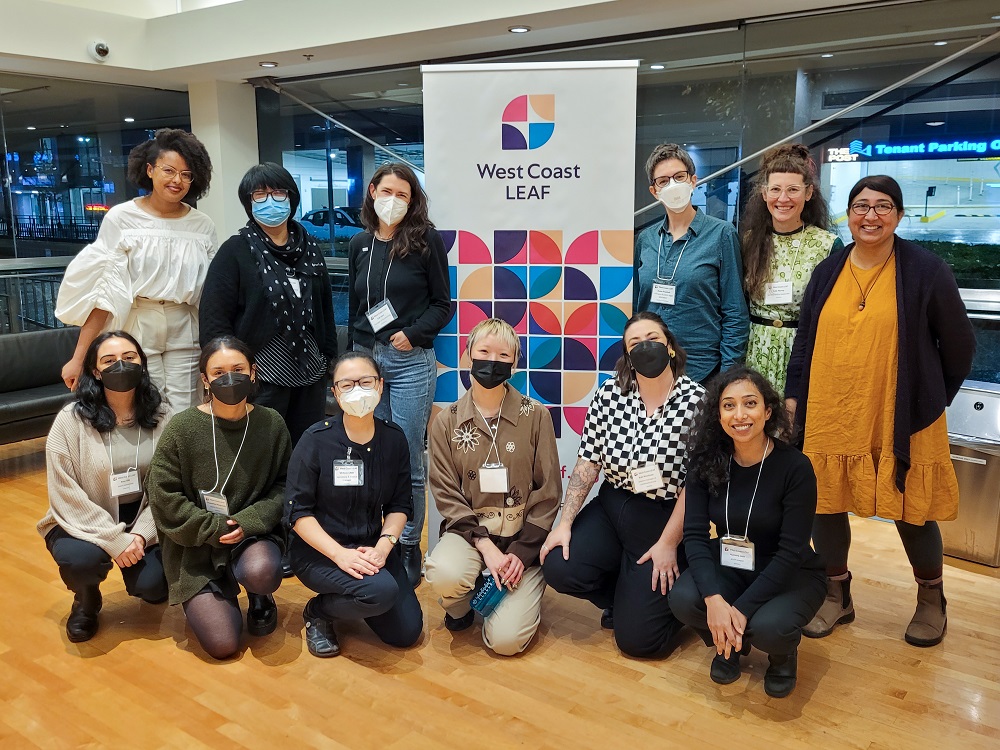
Describe your charity/non-profit/volunteer work in a few sentences.
At West Coast LEAF, we promote gender equality by changing systems, institutions, laws, policies, and public attitudes. We strive to deepen justice and substantive equality for women and people who experience gender discrimination. Through our community-engaged legal practice, we collaborate with those most impacted and marginalized by systems of oppression and stop at nothing less than transformative social change.
For nearly 40 years, we’ve worked to bring about social change through litigation, education, and advocacy to create a more equitable, accessible, and just world for all.
What problem does it aim to solve?
West Coast LEAF works to end gender-based discrimination and inequality for women and people marginalized based on their gender.
We use legally rooted strategies to dismantle gender-based discrimination and move toward gender justice by advancing access to justice, healthcare, family well-being, and economic security, and working to end gender-based violence and criminalization. With substantive equality as one of our foundational values, we work to make legal systems more accessible and responsive to those who have been marginalized and disadvantaged.
When did you start/join it?
I joined West Coast LEAF in March 2016 when I was hired into a new role managing the organization’s growing litigation portfolio. I took on the position of executive director in September 2019 after my predecessor was appointed as BC’s Human Rights Commissioner.
What made you want to get involved?
I learned about West Coast LEAF when I was a law student at the University of Victoria. I graduated from law school in 2003, at a time when the impact of drastic cuts to BC’s social services and legal aid system were being felt in communities across the province. Family law legal aid funding was cut by 40%, and poverty law services eliminated altogether. West Coast LEAF had long been calling attention to how these cuts to social and legal services would have distinct and disproportionate impacts on women and people marginalized by gender. So, when the opportunity to work at West Coast LEAF came up, I was excited to join an organization that had been working on this issue through research, public awareness, and advocacy strategies, and was now looking to take the fight to the courts.
What was the situation like when you started?
I joined West Coast LEAF at an exciting time. We were getting close to launching our first test case—a constitutional challenge to BC’s legal aid regime as it impacts women fleeing interpersonal violence. The organization had also supported the creation of a new family law legal clinic (Rise Women’s Legal Centre). Along with litigation, West Coast LEAF also had several legal research and law reform projects on the go, an in-demand roster of workshops aimed at educating youth and young adults about their rights, and regular invitations to make submissions before Parliamentary and legislative committees. We were—and still are—punching well above our weight!
We were also shifting our mandate to being explicitly inclusive of all forms of gender-based discrimination. As a historically cis women serving organization, our work had not reflected the experiences of—and in some instances harmed—the interests of trans people of all genders, gender non-binary people, Two-Spirit people, and people with diverse gender identity and gender expression. This was an important moment in our organization’s history, and a mandate that we are continuing to action. At the same time, recognizing our status as a settler-led organization working on stolen Musqueam, Squamish, and Tsleil-Waututh lands, we were exploring how to implement the Calls to Action of the Truth and Reconciliation Commission addressed specifically to legal institutions and lawyers. We were at the very beginning of that work, and again had much to learn, unlearn, and relearn.
How has it changed since?
When I started working at West Coast LEAF, we were a small-ish non-profit organization, with eight full-time staff. Today, we’re double that size. As the organization has grown, we’ve been able to deepen our community engagement efforts and strengthen collaboration across staff roles.
We are actioning our commitment to gender inclusion through relationship-building and deeper community engagement with organizations supporting trans and Two-Spirit people. An Indigenous Advisory Circle supports our response to the Truth and Reconciliation Commission’s Calls to Action. We’re also actioning a decolonizing plan called Changing Tides to hold ourselves accountable to Indigenous communities and peoples. I’m grateful for the trust that communities have shown in our organization. I am especially proud that we are taking risks and trying new things to meet these commitments.
The work we do is just as vital today as it was when I started, if not more. The pandemic shed light on what those of us who work in the gender equality sector already knew: gender-based violence is an epidemic, poverty remains entrenched and deeply feminized, the income and resource inequality gap is an ever-widening chasm, and people oppressed across multiple layers of identity are either invisible to the systems that shape their lives, or are entirely too visible through disproportionate policing, surveillance, and scrutiny. The world is increasingly polarized, and we cannot assume that past gains for gender equality will stick. Our systems change work has evolved to become more strategic, collaborative and richer, but it is still a (very) long game.
What more needs to be done?
Over the years, we’ve made critical progress in the fight for justice for women and people facing gender-based discrimination. But the work for gender justice is far from over! Women and people who are marginalized based on gender still experience discrimination through systems that remain unjust and inequitable.
Recently, West Coast LEAF represented the Centre for Family Equity in their seven-year-long constitutional challenge against the province and Legal Aid BC on the right to family law legal aid. Earlier this year, we were thrilled to announce that a historic settlement had been reached.
Even so, the work to ensure that lone parents navigating family violence get the legal aid services they urgently need is only just beginning.
We currently have several active cases, including two at the Canadian Human Rights Tribunal advocating for the rights of imprisoned birthing parents and Two-Spirit Indigenous people. We take part in litigation that will bring significant changes to laws, policies, and systems. Our systemic advocacy work is also ongoing, such as our work with the Family Well-Being Coalition, which brings together activists, affected families, and advocates with the aim to transform and re-envision the family policing system (also known as the child welfare system).
We still have a long way to go to achieve gender justice, and that work needs our collective efforts! Together, we can create a more equitable and just society for all.
How can our readers help?
This work would not be possible without the support of our incredible community members. Together, over the past four decades, we’ve made tremendous gains for gender justice, securing some of the most important feminist victories in Canada. This is possible because our supporters provide long-term, sustainable support through monthly donations.
Become a monthly donor today and help create an equal and just society for all women and people who experience gender-based discrimination. Membership is another great way of demonstrating a deeper level of commitment to our work and organization, and a donation of any amount qualifies you for membership. After 40 years of this work, we’ve made some incredible gains, but we also know how much still needs to change. Our shared vision of gender justice won’t be achieved overnight, which is why some of our supporters choose to leave a legacy gift to West Coast LEAF, to transform the future. Make sure you’re following us on social media and join our email list to stay informed about the work you’re supporting, events you can attend, actions you can amplify, and volunteer opportunities. Whatever way you choose to support this work, you will make a difference.
Do you have any events coming up?
West Coast LEAF is proud to host and support many events, including our beloved yearly fundraiser, the Equality Breakfast, and various webinars and events in partnership with other groups.
Our next upcoming event is our Annual General Meeting in October, where members and non-members alike can come hear about our work and learn more about what we do. You can stay up to date on this event by joining our mailing list. Attending an event is a unique way to support our work and take action in the name of gender justice. Check out our other events!
Where can we follow you?
Website | Instagram | Facebook | LinkedIn
PAY IT FORWARD: What is an awesome local charity that you love?
One local organization that we have the pleasure to work with often is the Urban Native Youth Association (UNYA). They provide meaningful opportunities for urban Indigenous youth by providing a safe place for Indigenous youth to come and find out about programs and services at UNYA and in the broader community. UNYA strives to support Indigenous youth by providing a diverse continuum of advocacy, preventative and support services that respond to their immediate and long-term needs. We recently collaborated on a series of videos with UNYA’s 2-Spirit Collective on the importance of gender-affirming care.
Another incredible organization whose work we’re consistently inspired by is Health Justice. They work to transform the BC Mental Health Act into a law that promotes human rights principles and evidence-based health practices. Working with Indigenous experts and other stakeholders, they use research to ensure care, transparency and respect for human rights related to health care.
